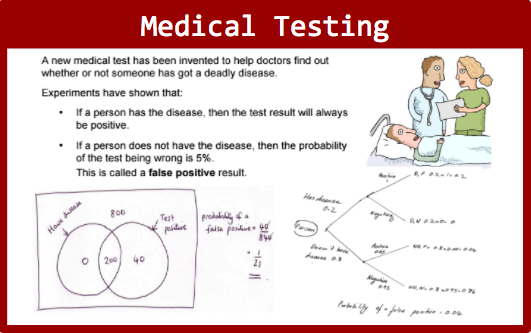Although students have intuitive notions of how probability works, often their naive mathematical understandings miss critical nuances of probability in action. In this unit, the objective is to confront students with their misconceptions of how probability works and then extend their understanding of probability. This unit builds a foundation for working with probabilities. Basic rules of probability are discussed, including conditional probabilities. Extra care should be taken to develop the conceptual understanding of probability, rather than just memorizing a relationship. Instruction through the use of simulations will help build the necessary conceptual foundation for the successful study of probability. The idea of independence is important and often misunderstood. Being able to explain probability in everyday language as well as interpret everyday language into probability statements is a critical skill for mastering these standards. Students should be exposed to multiple representations of information and asked to calculate probabilities from them. Two-way tables, Venn diagrams, and probability trees should be common in this curriculum.
Essential Questions:
- How can probabilities be used to analyze and make fair decisions?
- How likely are random events to occur?

